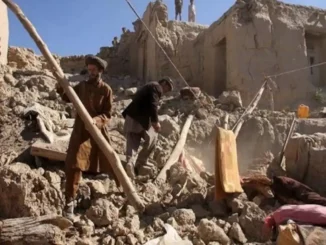
New Delhi (TIP)- The Supreme Court on Friday, August 18, observed that it cannot restrain the Bihar government from publishing the cumulative data or findings of the Bihar caste survey unless there is a prima facie case to show violation of any constitutional right or lack of competence on the part of the state government.
A bunch of petitions in the top court have challenged the August 1 judgment of the Patna high court that allowed the government to carry out the exercise which the Bihar chief minister Nitish Kumar has pitched as essential and imperative to further the cause of social justice.
“We are not going to stay anything unless there is a prima facie case to show some violation… some legal issues that are debatable. The exercise has already been completed and the judgment of the high court has been in their favour. We will not stay anything without there being a prima facie case now,” a bench of justices Sanjiv Khanna and SVN Bhatti remarked, as it took up a clutch of petitions challenging the Patna high court judgment of August 1.
As soon as the matter was taken up, senior counsel Aparajita Singh, appearing for one of the petitioners, requested the bench to stay the publication of the survey until the court decides the matter finally. “All the data has already been uploaded. We are requesting the court to stop the publication of the survey,” she said.
But the bench remained indisposed. “Please, argue the case. We are not staying anything without hearing the parties. We will hear you on the prima facie case and will ask them to rebut. If you can make out a satisfactory prime facie case, we will pass an order accordingly, but we are not going to pass any order right now,” it clarified.
Appearing for the Bihar government — a Mahagathbandhan, or Grand Alliance, of the Janata Dal (United, Rashtriya Janata Dal and the Congress — senior counsel Shyam Divan opposed the plea for staying the publication of the survey, adding only the cumulative results of the survey and not the personal details of individuals are made public.
Following this, senior advocate CS Vaidyanathan opened the arguments on behalf of the NGO Youth For Equality, pressing that the Bihar government’s survey was conducted in breach of the Supreme Court’s nine-judge bench verdict in the Puttaswamy case. He said that the judgment held that it is only through a law that a state can carry out an exercise which can impact a person’s privacy.
“But here, the state government conducted the whole exercise though an executive order. There was no law made by the state government to carry out this survey, as envisaged under the nine-judge bench of the Supreme Court in Puttaswamy. An executive order cannot substitute a law when somebody’s right to privacy is violated,” Vaidyanathan argued.
Responding, the bench asked the counsel which aspect of privacy is alleged to be violated when the survey will publish only the cumulative data and not individualistic information. To this, Vaidyanathan said there were 17 socioeconomic questions asked of the individuals during the survey. But the bench replied that the process did not envisage any penalty if someone chose not to answer.
Concluding his submissions on the prima facie case, Vaidyanthan reiterated that the state was not authorised to conduct the exercise without there being a law. The court will take up the matter next on August 21 when Singh will argue her plea for staying the publication of the survey.
In Bihar, the call for a caste survey erupted last year and was supported by all parties, though the ruling Janata Dal (United) and Rashtriya Janata Dal led the demand. Over the past few months, a number of Opposition parties, including the Congress, have picked up the appeal across India, hoping that an enumeration of castes will be a game-changer in reversing the BJP’s deep inroads into the backward groups, and countering religious polarisation.





Be the first to comment